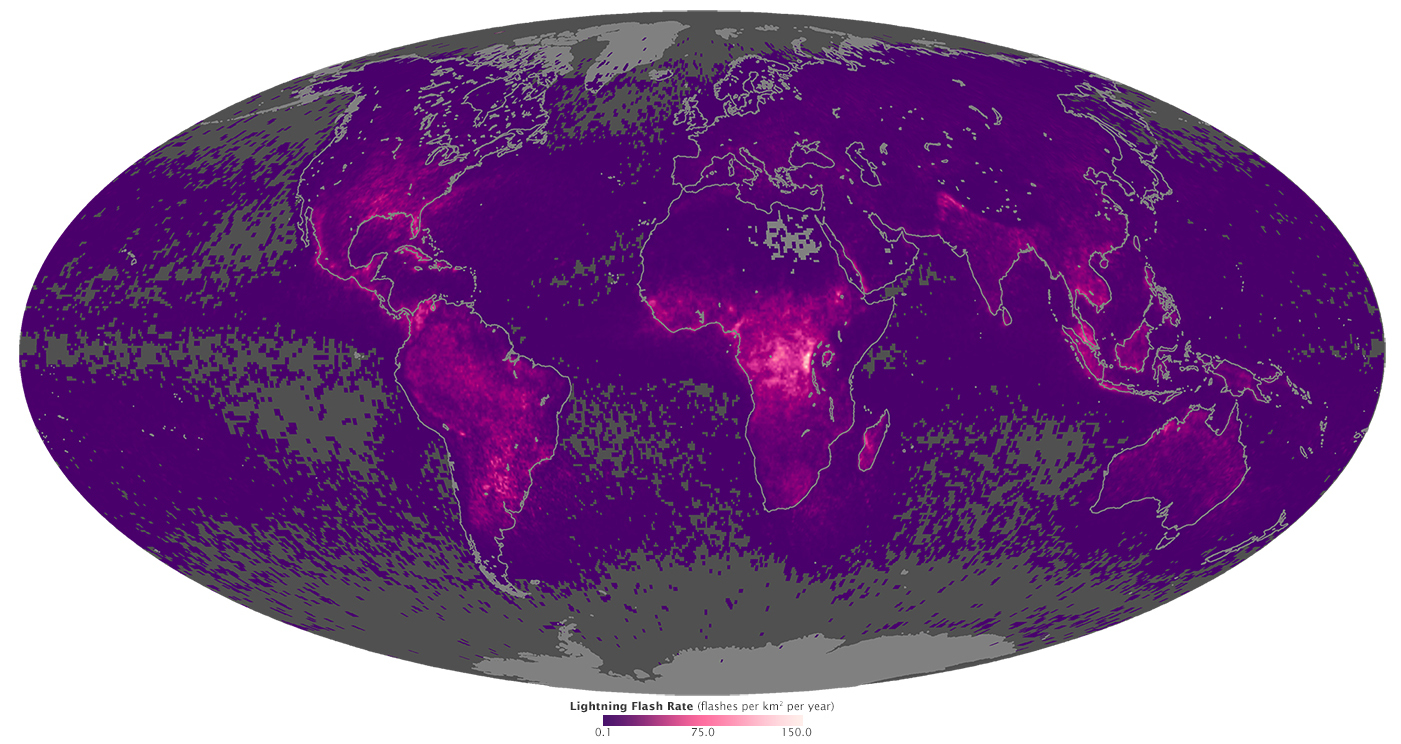Gigglebit is Siliconrepublic’s daily dose of the funny and fantastic in science and tech, to help start your day on a lighter note.
Today, we’re talking lightning, and its propensity to strike the same place over and over and over again.
Research from NASA’s Earth Observatory has discovered that the equator is a hot zone, with those of us dwelling on land far more likely to get hit than the few of us who live on water.
A study of every lightning incident between 1995 and 2013 found that the higher propensity for lightning to strike on land is down to the fact that solid earth absorbs sunlight and heats up faster than water.
This, in turn, means the atmosphere over land is less unstable than over water, making it prime for lightning strikes.
NASA’s data has also pointed to some acute, regional trends. “For example, scientists have observed a large number of flashes during the month of May in the Brahmaputra Valley of far-eastern India.”
Just before the monsoon season hits in June, the heating and weather patterns are wildly unstable, thus providing a greater attraction for lightning.
In a broader, more worrying, sense, central Africa and north-western South America see lightning all year long – right along the equator.
It’s quite clear in this map, created by the NASA-supported Lightning Team, which is a truly fantastic team name.

As the map shows, the highest amounts of lightning flashes occur in the far eastern Democratic Republic of Congo, and Lake Maracaibo in north-western Venezuela.
NASA’s Daniel Cecil says that such a large data pool hasn’t significantly altered scientists’ views on lightning.
“[But] the longer record allows us to more confidently identify some of these finer details,” he said. “We can examine seasonality, and variability through the day and year-to-year.”
NASA’s research doesn’t go into ‘upward lightning’ that, until today, I was blissfully unaware of. If you look at this video you will see lightning sticking it to the sky!
And here’s how lightning babies are born: